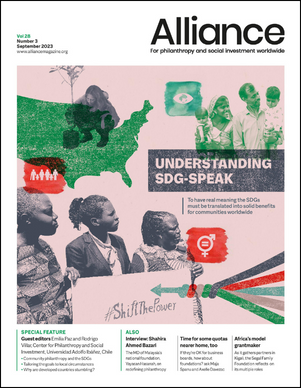Without systems change, localisation cannot salvage the SDG
A new report issued this year by the UN says: ‘At this midpoint on our way to 2030, the Sustainable Development Goals are in trouble.’[1] The report reveals that 48 per cent of the goals are either off track or severely at risk. A further 37 per cent have either stagnated or retrogressed. Only 15 per cent are on track to be achieved in 2030.
How do we interpret this in the local context? Much has been said about the need to localise the SDGs and many countries now include the targets and their monitoring mechanisms in their national development plans. Localisation of the SDGs makes sense since the goals must be relevant to the lives of the people in their everyday lives. It also helps to distinguish various levels of progress at national and community levels. But that is not enough. To achieve the desired results, drastic systems change is needed.
In 2020, in an address to the Impact SDG Accra Summit, I raised questions about the global system within which the SDGs had been produced: ‘The SDGs on poverty, hunger, inequality etc are well and good. But these issues are effects. The underlying cause is the international system. Without addressing these underlying issues of international political economy, power relations etc, the SDGs will be meaningless to the lives of the majority of the world’s population by 2030.’
Subscribe now from only £45 a year!
This article is only available for our subscribers
Existing users can login here






